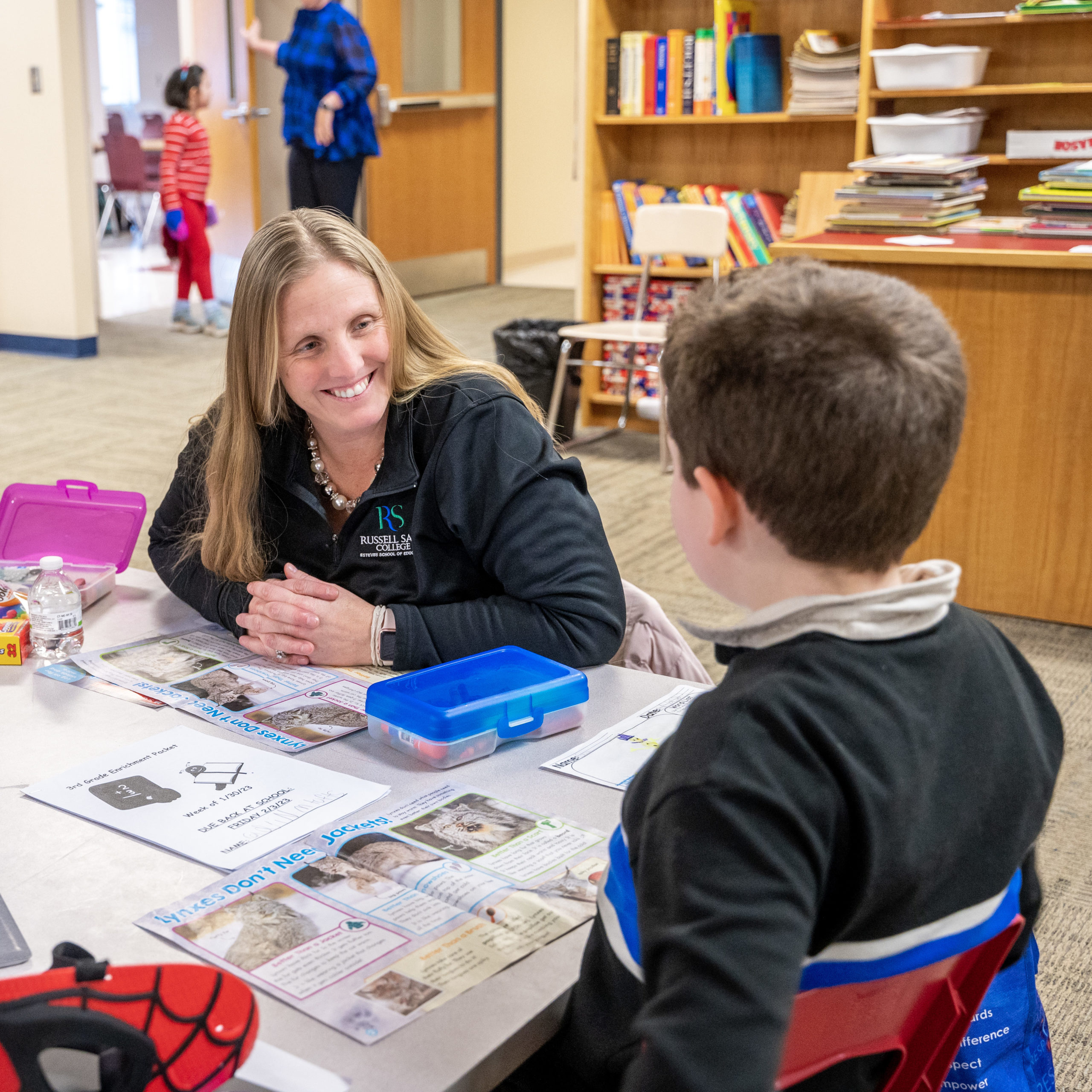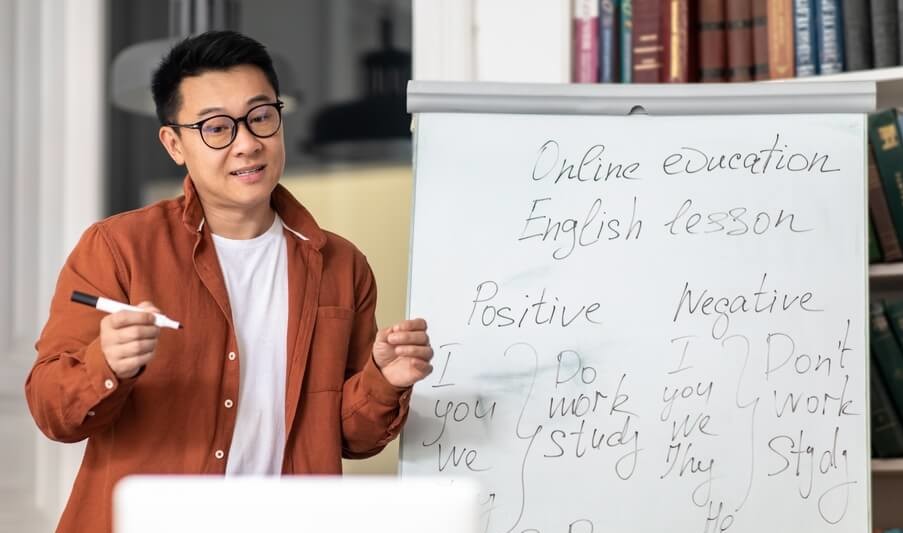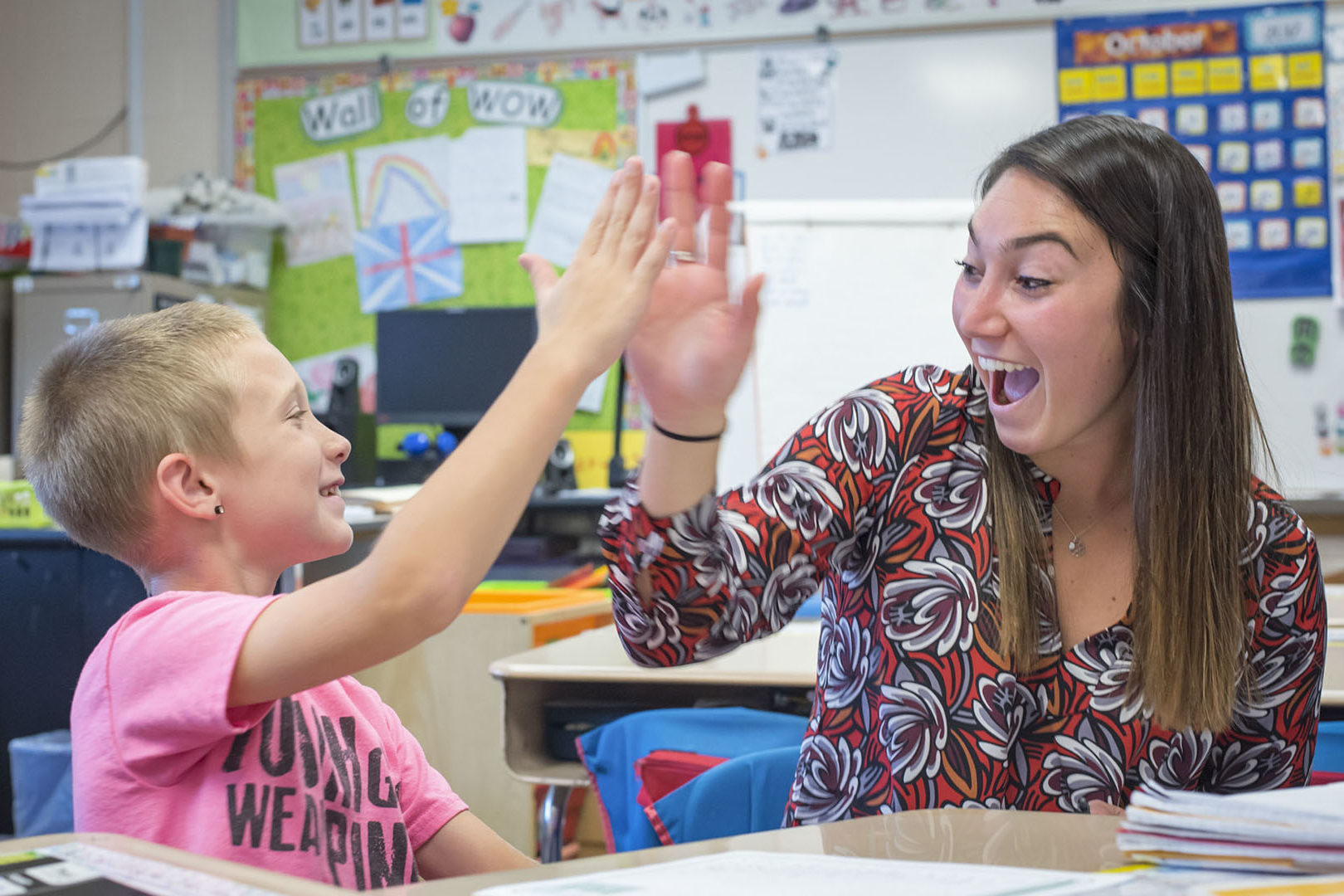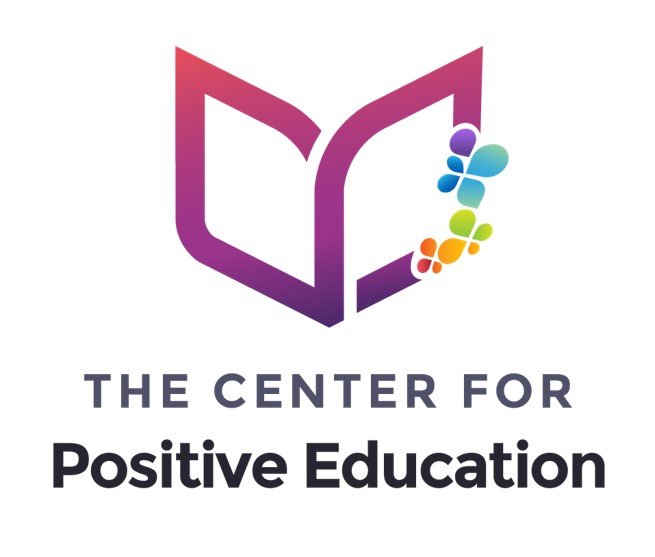The Power in Positive Education
Positive Education emphasizes principles of Positive Psychology, which focuses on teaching a mindset that develops academic tenacity while building emotional and social well-being. This approach creates a mindset shift that not only leads to deep satisfaction but emotional agility and a life of lasting happiness and well-being.
As school systems face rising student mental health needs, the focus has turned to Social and Emotional Learning (SEL). Russell Sage knows it is as important as lesson planning and assessment.
That’s why in October 2024, we became the first college in the nation to partner with The Center for Positive Education, ensuring all of our graduates would be ready to meet the needs of today’s classroom.

What is Positive Education?
The Center for Positive Education began certifying positive educators in 2017, and says this approach can address the needs of schools in five ways:

- Addresses childhood mental health issues. Research has shown Positive Psychology interventions significantly increase happiness and decrease symptoms of anxiety and depression.
- Prevents teacher burnout. Positive Education offers strategies teachers can apply to help students but the approach also helps with teachers’ self-care.
- Helps students realize their potential. Positive Psychology has been shown to increase student engagement and motivation in the classroom.
- Builds resilience. Positive Psychology helps students and teachers turn setbacks and hardships into increased resilience – creating a valuable lifelong asset and academic tenacity.
- Increases belonging. Positive Education has shown improvements in 10 areas that are key to students’ sense of belonging: academic motivation, emotional stability, understanding of personal characteristics, parent support, peer support, teacher support, gender, race, and ethnic inclusion, extracurricular participation, and environmental/school safety.
How Does Positive Education Play Out in the Classroom?
Positive Educators recognize when a student is worried about something. This often presents as an inability to focus, which typically does not allow a child to work to their potential.
Positive Education normalizes fear and worry, and teaches students the tools and skills they need to work with it.
A Positive Educator might teach a student to talk back to the worry. We would remind them to stay in the present and focus on what’s happening now not what could happen.
It’s about teaching students to work with worry, because sometimes worry is inevitable, and not everything will always be OK. We use techniques like mindfulness and calming practices, and we teach students to make shifts in their thinking.
Addressing what’s real for our students helps them to focus on academic learning and builds critical life skills.
What Power in Positive Ed Means at Russell Sage
As part of the partnership with The Center for Positive Education, Russell Sage students in every undergraduate major and graduate program within education, including the master’s in Professional School Counseling, will take a required noncredit course, or one module, in Positive Education.
By 2025-2026, the college will implement three additional Positive Education modules, and students will have the option of earning a microbadge issued by The Center for Positive Education.


Learn More About Our Partner
The Center for Positive Education offers pathways to becoming a fully certified Positive Educator.
Learn more about the center on its website.

